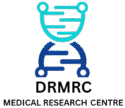The tickling enigma: Why we still don’t know how it works after 2,000 years
How come you can’t tickle yourself? And why can some people handle tickling perfectly fine while others scream their heads off? Neuroscientist Konstantina Kilteni from the Donders Institute argues in an article published on May 23 in Science Advances t…
